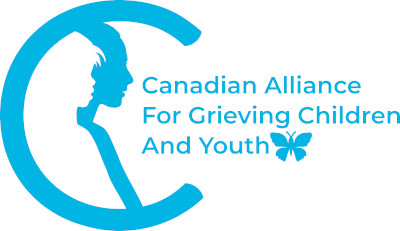
It is estimated that 1 in 14 children will experience the death of a parent or sibling by the time they turn 18.
In just one year, over 203,000 of Canada’s 7.5 million children under 18 will experience the death of someone in their extended family. Almost 40,000 will experience the death of a parent or sibling who lives in their home.
The death of a parent or sibling has been found to be one of the most stressful life events that a child or youth can experience.”

WHY A GRIEF NETWORK
We recognize that the support received by a grieving child or youth can significantly influence his/her wellbeing. As a result we aim to connect individuals and organizations who provide services and resources that benefit children and youth who are grieving a death.
In our 2018 national survey, we heard LOUD and clear that the need for a grief network extended far beyond the Region of Peel and the Greater Toronto area. We believe in ACTION so in 2019 the Canadian Alliance for Grieving Children (CAGCY) was launched.
CYGN and CAGCY are working to create a framework that promotes national, provincial and region connections and to continue to add to and improve all the great CYGN resources We are super excited about this transition as we know that it will support our goal to build community capacity and ensure no child, youth or family grieves alone.
Visit the CAGCY at https://grievingchildrencanada.org/ to become a member of this awesome Canada wide network.
How to help a grieving friend
The human soul doesn’t want to be advised or fixed or saved, it simply wants to be witnessed, exactly as it is. Parker Palmer
Watch this insightful 4-minute video to learn how to help someone grieving.
A BIG shout out to grief expert Megan Devine and Refuge in Grief for sharing this message and video
What Kids Want to Know: The 6 C’s
Children need to be reassured:
1) What is it Called?
2) They did not Cause the illness or death
3) They cannot Catch the illness
4) They cannot Cure the illness
5) Someone will take Care of them
6) Staying Connected to your loved one
TO HELP GRIEVING CHILDREN
GRIEVING CHILDREN
WANT YOU TO KNOW
Talking to kids about terminal illness
New guidelines call for speaking openly with children when they or their parents face life-threatening diseases.
“If we don’t tell them, they have to cope with their anxieties by themselves,” he said. “If it can be shared, they can get the kind of support they need, and the evidence is, this in many cases has benefits for the family system and the individual child.”
Dr. Alan Stein
https://www.nytimes.com/2019/03/18/well/family/talking-to-children-about-terminal-illness.html
The 3 W’s: WONDERS, WORRIES, AND WISHES
Take time to check in often about children’s Wonders, Worries, and Wishes. Avoid judgement or trying to minimize difficult topics or concerns. It’s natural for a parent to want to say something like “you don’t need to worry about that” when a child shares that they’ve been thinking about something hard or scary. If your child is bringing up a topic it means that it is on their mind and something that they want to talk about. Telling them not to worry doesn’t usually make the worry go away. However, it can unintentionally lead a child to believe that this is something they should not openly talk about. You don’t need to have all the answers. It is ok to wonder about things together, to wish for things that may or may not be possible, and to worry about difficult things.
PACT (Pediatric Advance Care Team), 2021. Parts of the document were adapted from KidsGrief.ca .
TIP
Wonder’s, Worries, and Wishes


